We began our ministry in Mexico in 1979 with the Child Sponsorship Program, and through the years we have moved into highly impoverished areas to help children in need.
But poverty continues to impact Mexico severely. The recent worldwide economic crisis hit the country hard with rising costs and lack of employment.

In the last five years, Compassion Mexico has experienced significant growth, increasing the number of registered children from almost 11,000 to nearly 20,000.
Country Director
Omar Villagran joined the ministry in Mexico as a Program Supervisor in 2003 and was appointed Country Director in 2004. Prior to this, Omar co-founded a nongovernmental organization called AMEXTRA, which combined community development with income-generating activities.
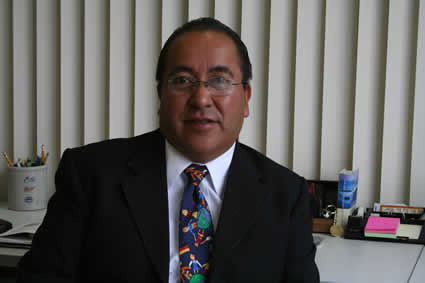
Omar’s father died when he was very young, so Omar was raised by his mother. He believes that his experience living in a single-parent household helps him relate to the vulnerable children he serves. Under Omar’s leadership, the ministry has grown from serving 4,000 children to serving 20,000 children.
Omar believes that strengthening our staff and providing a developmental perspective to our Implementing Church Partners is key to bringing hope to the children and youth in Mexico.
Omar holds a degree as a veterinary physician and zoological technician from the National Autonomous University of Mexico.
Implementing Church Partners
Implementing Church Partners are local churches with whom we work to deliver child development and ministry in the field.
- Spiritual Climate
According to the 2000 census, 88 percent of the population in Mexico is Roman Catholic and 5.2 percent is evangelical/Protestant. The church in Mexico tends to be traditional and struggles to collaborate well because of denominational diversity. However, the church has grown and become more stable in the last few years.In the past, persecution was an issue in certain parts of the country, but the church has established peace and has shown a strong commitment to hard work and holistic child development.
- Unique Challenges
There are many different ethnic groups in Mexico. Although we do work with some purely indigenous communities, most of the rural and suburban communities are made up of people from many backgrounds, ethnic groups and cultures. Approaching churches and communities in a manner that is appropriate for all of these people groups can be challenging.The Mexican government has tried to implement many programs to fight poverty. Unfortunately, most of these programs promote dependence on handouts rather than development. This makes it more difficult to implement a developmental program with the purpose of bringing about long-term results, because it challenges the dependency mindset of families and communities.
Although education is free and available to everyone, we cannot depend on local schools to provide quality education to all children. Also, school fees, supplies and uniforms are not free and many parents cannot afford them.
These parents also prefer that their children work to help support the family. This is a common mindset among parents and a difficult one to change.
There is a strong Catholic presence in Mexico, and some of the local priests influence the community to react negatively to Protestants. Some families with a Catholic background resist the way we teach the gospel at our centers.
- Contributions
Implementing Church Partners provide the infrastructure for the Compassion program.They provide guidance and follow up for the families of the children; groceries and medical attention to family members; community development activities; discipleship and health campaigns; and additional courses and training for staff members to improve their teaching and organizational skills.
- Partner Development Activities
Compassion develops Implementing Church Partners through training, regular leadership meetings with the pastors and staff, and quarterly meetings with the project directors. We also encourage Implementing Church Partners to support one another within their small groups.
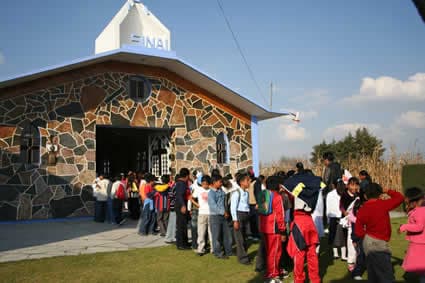
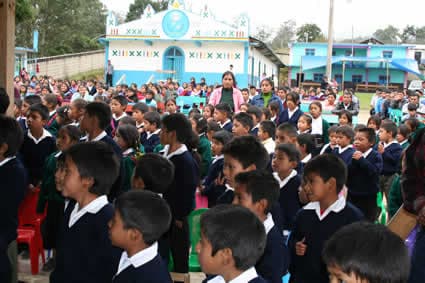
Child Development Through Sponsorship
Your sponsorship of a child in Mexico provides a variety of benefits.
School in Mexico is typically held Monday through Friday, either in the morning or the afternoon, so ICPs plan their activities around the local school schedule. Child development centers in Mexico vary in the hours they are open. Below is a typical schedule, though some centers meet only on Saturdays.
- Meeting Times
- 3- to 5-year-olds: 2 1/2 hours on two weekdays and 3 hours on Saturdays; or 3 hours one weekday and 5 hours on Saturday
- 6- to 11-year-olds: 1 1/2 hours on two weekdays and 3 hours on Saturdays; or 2 hours one weekday and 4 hours on Saturday
- 12- to 18-year-olds: 2 hours on two weekdays and extracurricular activities on the weekend; or 2 hours on one weekday, 2 hours on Saturday, and 2 more hours of extracurricular activities
- Nutritional Support
When children come to the development center for more than 4 hours, they receive a full meal. When they attend for less than 4 hours or for an extracurricular activity, they receive a snack. A meal consists of a main dish of meat, chicken or soy, and vegetables, fruit and fresh water.If children are served a morning meal, it will generally be ham, eggs and fried beans.
A snack is usually fruit or a nutritious dessert. We want to give the children something that will provide them with strength and energy for their activities. Our purpose is to provide them with nutritious food that will supplement their regular
diet, which often is not balanced. - Vaccinations
Vaccinations are provided by the government at local clinics. The child development centers keep a copy of each child’s vaccination record and the health coordinator ensures that all children are up to date on their vaccines.Parents are encouraged to follow up on their children’s vaccination schedule. However, it is not uncommon for a development center to request the local clinic to come and administer the needed vaccines to the children.
- Extracurricular Activities or Community Service
Children participate in sports, special celebrations, birthday celebrations and service activities regularly. Camps and field trips are held once or twice a year. - Vocational Activities
Vocational activities for adolescents vary from center to center, but some of the vocational training offered includes carpentry, painting, cooking, computer classes, English, hammock making, silk-screening, embroidery, hair styling, and chicken and fish farming.Each child development center considers the resources and skills available in their community and within the ICP, then selects their vocational training accordingly. If the appropriate people are available to train the youth, then that activity will be offered.
- Parent Involvement
Parents are typically involved in activities such as parenting classes, income-generating activities, evangelistic campaigns,
discipleship activities, health activities for families, and other special events such as parent-children exercise. - Areas of Expansion for the Child Sponsorship Program
We are planning to expand in Los Altos de Chiapas and in the northern region of Veracruz. Both are regions where
indigenous people live, and poverty indicators show these to be some of the more needy areas.
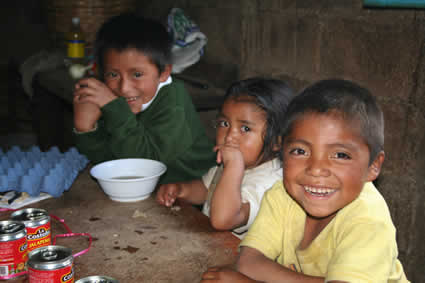
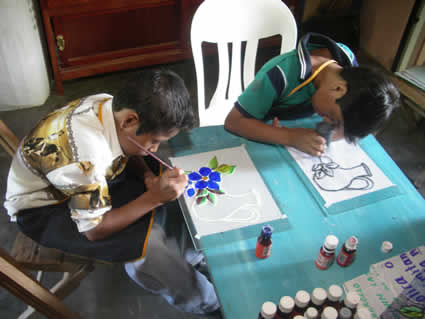
Complementary Interventions
Our core Child Sponsorship Program, while comprehensive, does not address all obstacles to a child’s healthy development. Compassion’s Complementary Interventions Program was created to work with our child development model to provide additional services, such as our AIDS Initiative, Bibles for all children, disaster relief and safe-water projects.
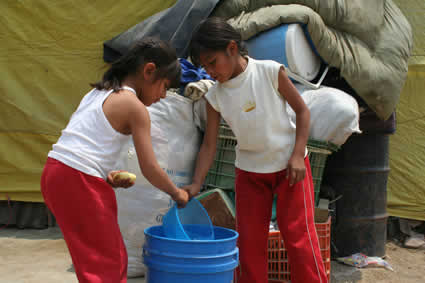
Some of the Complementary Interventions we offer in Mexico include health initiatives such as latrines; de-worming and vitamin campaigns to improve children’s gastrointestinal health and nutrition; curriculum; income-generating activities; and water projects.


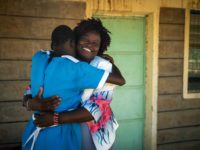




2 Comments |Add a comment
I always get excited when I find info on Mexico, since my girl is there. 😉 Thanks so much!
so glad to know more about Mexico. my little Carlos lives there, and I like to know what he does.